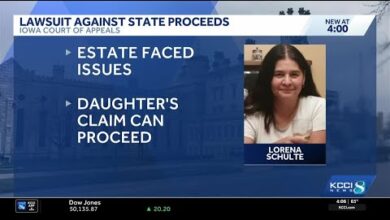Scope of NMC whistleblower investigation revealed

The draft terms of reference for the investigation into the Nursing and Midwifery Council (NMC)’s treatment of whistleblowers, and its handling of fitness to practise cases, have been unveiled.
Barrister Ijeoma Omambala KC was, last month, chosen by the NMC to lead the investigation into allegations it had failed to respond appropriately to conerns over its fitness to practise (FtP) work and its culture.
“I’m glad that this work can now get fully under way”
Andrea Sutcliffe
The NMC, it was alleged earlier this year, was mishandling FtP cases including those involving discrimination, sexual misconduct, domestic abuse and safeguarding.
The regulator was accused of prioritising speed over thoroughness and fairness in order to cut down its lengthy FtP backlog, and that a “culture of fear” in the organisation was preventing staff from speaking up.
It was further claimed that a person who whistleblew on the alleged poor casework was mistreated.
In the wake of these allegations, Ms Omambala has been commissioned by the NMC to lead two linked investigations: one into whistleblowing, and another into the FtP cases themselves.
A third, separate investigation will then look into concerns raised about the NMC’s culture, and the Charity Commission is running its own one into whether the NMC has failed in any of its regulatory duties.
NMC Council papers have now been published which include draft terms of reference for Ms Omambala’s two investigations.
These terms of reference will be voted on at the NMC Council’s upcoming meeting on 22 November, and it is hoped the investigations themselves will finish in “early 2024”.
The investigations will, the draft terms of reference laid out, consider the specific FtP cases that have been called into question and determine if the decisions fulfil the NMC’s duties of protecting the public, public interest and safeguarding.
Ms Omambala is also tasked with considering whether the way FtP cases were investigated showed sufficient understanding and cultural “competence” with regard to discrimination and safeguarding.
She will also investigate whether the NMC’s current work to improve the way it handles cases is good enough.
She has also been asked to decide if there is evidence that organisational culture and behaviours impacted the outcomes of the cases, or whistleblowing instances.
In addition, the draft terms of reference state that Ms Omambala’s investigation will consider the NMC’s response to the whisteblower in this case, whether they were treated fairly, if the organisation followed its own practices, and how seriously the claims were treated.
As part of this, the investigator will look into the “appropriateness” of the NMC’s actions against its obligations as a regulator and its duty of care to employees, registered professionals and the public.
The terms of reference also include considering if the NMC’s policies on whistleblowing and grievances themselves are suitable and in line with best practice.
If Ms Omambala finds the NMC has fallen short in any area, she will identify specific gaps and report back on how the regulator can make improvements.

Andrea Sutcliffe
NMC chief executive and registrar Andrea Sutcliffe welcomed Ms Omambala’s investigation and added that it was “not about the actions of any one individual”.
“I’m glad that this work can now get fully under way, thanks to the quick and diligent way in which Ijeoma, our council and colleagues have worked together to shape the terms of reference,” she said.
“These terms are clear that this is about learning the lessons that will improve our casework in the future. The investigations are not about the actions of any one individual.
“We’ll be transparent about the findings, and about any actions we need to take forward to protect people’s safety.”







